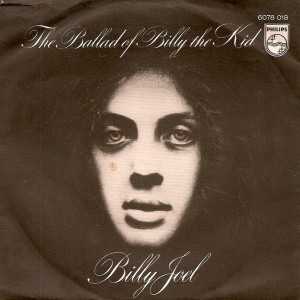By Dave Austin the “Music Professor”
It seems to me that there’s been another subtle shift in pop music tastes recently. After years of often mind-numbing rap and minimalist hip hop songs, my hopeful ears seem to be hearing a resurgence of slow songs which are classified as ballads. You remember them, don’t you? They were those down-tempo, emotion-laden songs that usually dealt with a romantic topic. Ballads have never completely gone away, but they have been hard to find in today’s up-tempo pop music arena.
Ballads have been with us since ancient times with roots originating with the wandering minstrels of medieval Europe who carried the news from village to village, singing of the exploits of Robin Hood and helping to create a rich tradition of popular music. Often their songs relied in imagery rather than outright description and they could be tragic, historical, funny, or poke fun at those in authority, and more recently, romantic.
As with many music forms, there are numerous classifications of ballads (border ballads, bush ballads, corrido, etc.), but for this discussion, we’ll concern ourselves with modern popular music which actually came about during the late 1800s and solidified the term to mean a slow love song. Although ballads declined in popularity during the 1700s, their influence carried over to the light operas of Gilbert and Sullivan (The Mikado, H.M.S. Pinafore, etc.), as well as the modern musical. (Kurt Weill’sThreepenny Opera, for example.) More recently, these same elements of ballad opera are seen in modern musicals such as Cabaret and Chicago.
The blues ballad is a fusion of both Anglo and Afro-American styles from the 19th century, relating tales of bigger-than-life anti-heroes, resisting authority or experiencing adversity and emphasizing character. The most famous of these blues ballads are those about John Henry and Casey Jones.
The commonly understood meaning of the term “ballad,” is for a slow sad love song, sometimes called a “torch song” (“One For My Baby,” “By the Time I Get to Phoenix,” etc.) or “tear-jerker.” (“Danny Boy,” “Someday (I Will Understand) by Britney Spears), etc.) Jazz musicians further broadened the term to include any song with a slow tempo. Even though the popularity of the ballad has varied over the years, its association with sentimentality has led to the term becoming generalized to mean any slow love song from the 1950s onward. Listen to songs such as “Over the Rainbow,” “The Man I Love,” “My Funny Valentine” or “God Bless the Child.” Ballads can also be used to describe story songs such as Don McLean’s “American Pie” or Billy Joel’s “The Ballad of Billy the Kid.”
Many of us are now familiar with the term “power ballad” when we speak of modern pop songs with emotional singing, slow tempos and loud and emotive chorus-backed conclusions. It was during the 1970s when the power ballad broke into the American musical mainstream as alternative FM radio stations pumped new life into earlier songs such as “Led Zeppelin’s “Stairway to Heaven,” Foreigner’s “I Want to Know What Love Is,” “Dream On” by Aerosmith and Lynyrd Skynyrd’s “Free Bird.” Interestingly, The Carpenters’ “Goodbye to Love” has been identified as the prototype for the power ballad.
Relatively new on the music scene is the Latin-American romantic ballad – a genre to its self among other Latin American music styles. It rose in popularity at the same time as Rock en Espanol and Latin pop began to reach wide audiences and today, some of the best-known artist of the Latin ballad are Marc Anthony of the U.S., Jose’ Feliciano and Ricky Martin of Puerto Rico, Shakira of Colombia, Julio Iglesias and Nino Bravo of Spain and Roberto Carlos of Brazil.
So, today I’m hearing such ballad hits as “Beneath Your Beautiful” by Labrinth, “Stay” by Rihanna, “Just a Fool” by Christina Aguilera and Blake Shelton and “Heartbeat Slowing Down” by The All-American Rejects. For me, this resurgence of ballad-type songs is a welcome and refreshing change, and with proms on my agenda, such songs will make it much easier for me to accommodate those who ask, “Can you play a slow song so we can dance?”

